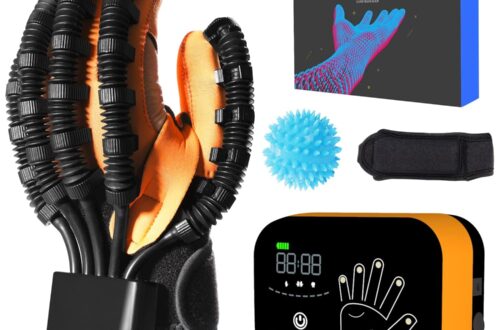Cognitive Symptoms
- Confusion about recent events (e.g., what happened yesterday?)
- Difficulty remembering phone numbers or appointments
- Trouble finding the right words to say
- Feeling like you’re in a fog or haze
- Difficulty following conversations or understanding spoken
language - Trouble remembering where you put things (e.g., keys, wallet)
- Difficulty recalling recent conversations or events
- Feeling lost or disoriented in familiar places
- Difficulty understanding written words or text messages
- Feeling like your brain is “fuzzy” or unclear
Motor and Sensory Symptoms
- Weakness or numbness in one arm or leg
- Tingling or burning sensation in one arm or leg
- Difficulty walking or standing without support
- Numbness or tingling in the face (e.g., lips, tongue)
- Trouble controlling hand movements (e.g., writing, drawing)
- Sensation of pins and needles in one arm or leg
- Weakness or numbness in one side of the body
- Difficulty lifting or moving your arms or legs
- Tingling sensation in the fingers or toes
- Numbness or weakness in the hands or feet
Speech and Language Symptoms
- Slurred speech or difficulty articulating words
- Trouble finding the right words to say (e.g., word retrieval
difficulties) - Difficulty understanding written language or text messages
- Feeling like your speech is “slowed down” or delayed
- Trouble communicating thoughts or ideas effectively
Visual and Spatial Symptoms
- Blurred vision or double vision
- Difficulty reading or recognizing printed words
- Trouble judging distances or spatial awareness
- Feeling like you’re seeing things through a foggy filter
- Nystagmus (rapid, involuntary eye movements)
Behavioral Symptoms
- Changes in mood or emotional state (e.g., anxiety,
irritability) - Difficulty making decisions or problem-solving
- Trouble concentrating or paying attention to details
- Feeling like you’re “out of it” or disconnected from reality
- Numbness or lack of interest in activities or hobbies
Other Symptoms
- Headaches or migraines without a clear cause
- Neck pain or stiffness without injury
- Difficulty swallowing or speaking clearly
- Sensation of fullness or pressure in the head
- Feeling like you’re “spacey” or disconnected from your body
Cognitive-Affective Symptoms
- Difficulty learning new information or skills
- Trouble recalling personal memories or experiences
- Feeling like your mind is “jumbled” or unclear
- Changes in appetite or eating habits without a clear cause
- Difficulty sleeping or experiencing vivid dreams
Motor Skills and Coordination Symptoms
- Difficulty coordinating movements (e.g., walking, climbing)
- Trouble with balance or equilibrium
- Feeling like your body is “heavy” or difficult to move
- Difficulty performing daily activities or routines
- Sensation of stiffness or rigidity in the muscles
Other Cognitive Symptoms
- Difficulty planning or organizing tasks
- Trouble with time management or scheduling
- Feeling like you’re “in a haze” or disconnected from reality
- Changes in interests or hobbies without a clear cause
- Difficulty recalling recent events or memories
Neurological Symptoms
- Tingling or numbness in the face (e.g., lips, tongue)
- Difficulty controlling hand movements (e.g., writing, drawing)
- Sensation of pins and needles in one arm or leg
- Numbness or weakness in the hands or feet
- Tingling sensation in the fingers or toes
Sensory Symptoms
- Feeling like you’re “out of it” or disconnected from reality
- Difficulty judging distances or spatial awareness
- Sensation of fullness or pressure in the head
- Numbness or lack of interest in activities or hobbies
- Tingling sensation in the fingers or toes
Speech and Language Symptoms
- Slurred speech or difficulty articulating words
- Trouble finding the right words to say (e.g., word retrieval
difficulties) - Difficulty understanding written language or text messages
- Feeling like your speech is “slowed down” or delayed
- Trouble communicating thoughts or ideas effectively
Motor Skills and Coordination Symptoms
- Difficulty coordinating movements (e.g., walking, climbing)
- Trouble with balance or equilibrium
- Feeling like your body is “heavy” or difficult to move
- Difficulty performing daily activities or routines
- Sensation of stiffness or rigidity in the muscles
Other Cognitive Symptoms
- Difficulty planning or organizing tasks
- Trouble with time management or scheduling
- Feeling like you’re “in a haze” or disconnected from reality
- Changes in interests or hobbies without a clear cause
- Difficulty recalling recent events or memories
Neurological Symptoms
- Tingling or numbness in the face (e.g., lips, tongue)
- Difficulty controlling hand movements (e.g., writing, drawing)
- Sensation of pins and needles in one arm or leg
- Numbness or weakness in the hands or feet
- Tingling sensation in the fingers or toes
Sensory Symptoms
- Feeling like you’re “out of it” or disconnected from reality
- Difficulty judging distances or spatial awareness
- Sensation of fullness or pressure in the head
- Numbness or lack of interest in activities or hobbies
- Tingling sensation in the fingers or toes
Other Symptoms
- Headaches or migraines without a clear cause
- Neck pain or stiffness without injury
- Difficulty swallowing or speaking clearly
- Sensation of fullness or pressure in the head
- Feeling like you’re “spacey” or disconnected from your body
Please note that this is not an exhaustive list, and it’s always
best to consult with a healthcare professional if you experience
any symptoms.





